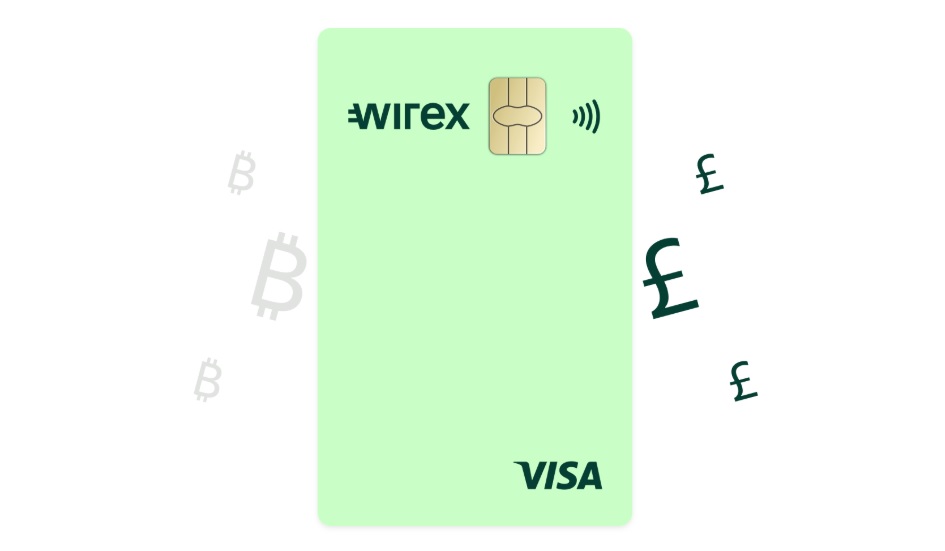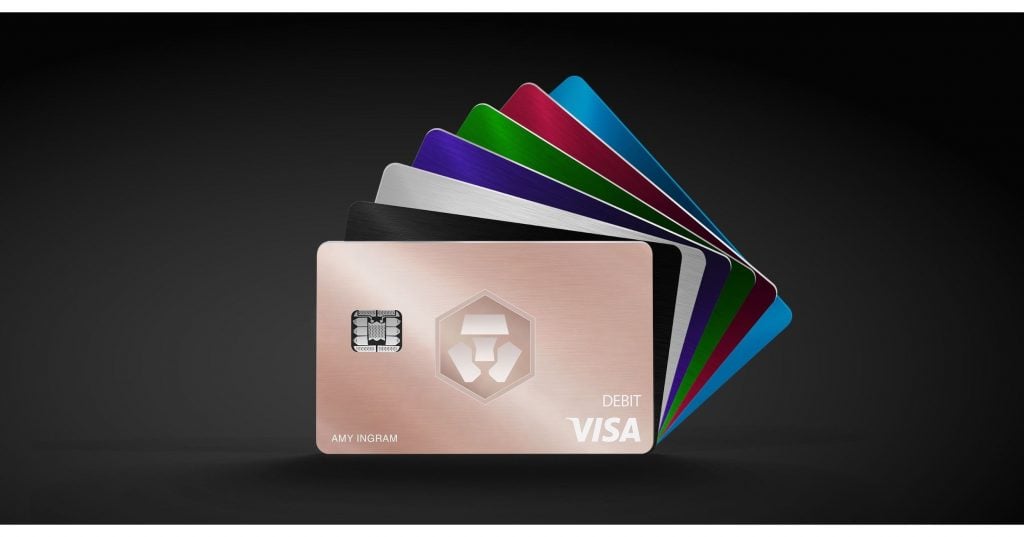
If cryptocurrency is designed to reconstruct the financial world while introducing major improvements in transaction speed, privacy, cost and convenience, debit cards represent a useful bridge between old and new. A preponderance of crypto debit card options now exist that allow cryptocurrency to be exchanged for spendable fiat currency at the touch of a button. Let’s take a look at a baker’s dozen of them.
Also read: How to Get Free Bitcoin in 2020
European Crypto Debit Cards
Plutus is one of the longest running crypto card services, having pitched up in 2015. The London startup has its own loyalty token (PLU) which is awarded to users every time they use their debit card. Notably, though, it’s a noncustodial platform which lets users retain control of their private keys. Usable in almost 200 countries, the card can be topped up using GBP or EUR, with ETH and PLU the only supported cryptos at the current time. Plutus also doubles as a virtual bank account, which is offered to residents anywhere in the European Economic Area (EEA) region for free.

Wirex is another popular option for Europeans. Founded in 2014, the London fintech firm was the first to release a contactless, multi-currency Visa card and boasts over three million customers in 130 countries, having processed $2 billion worth of transactions. Wirex’s slick light-green debit card supports conversion from several major cryptos, has a native built-in utility token (WXT), and gives users 0.5% BTC on in-store purchases through its Cryptoback program, rising to 1.5% if you hold 500,000 WXT tokens. There’s a modest card account maintenance fee of £1.00/€1.20/$1.50, with all other fees and limits broken down here. Having achieved success throughout Europe and the APAC region, Wirex intends to expand into Canada, Japan and the U.S. in 2020.

Monolith is a noncustodial option that allows ETH and ethereum-based tokens to be stored in its mobile wallet before being converted and spent on the Monolith Visa card. Billed as a “decentralized bank,” Monolith is closely aligned with the defi movement that has come to define Ethereum. DEX integration will be added soon, together with support for the Ethereum Name Service.

Since 2017, UK digital bank Revolut has let users from the EEA buy, hold and exchange crypto, with the possibility of instantly exchanging any of 30 fiat currencies directly into bitcoin, litecoin, ethereum, bitcoin cash and XRP (and vice-versa). Revolut takes a flat 1.5% cut but it’s possible to transfer crypto to other Revolut members in seconds without paying a fee. Buy goods in-store or online using the Revolut debit card or app; if you only have crypto in your account, Revolut will exchange it into fiat in the retailer’s local currency at the point of purchase. Cryptocurrencies are only available on Revolut’s paid plans: it’s £6.99 a month for a Premium card and £12.99 for a Metal one.

Cryptopay is one of the original bitcoin payment cards, and offers a plastic prepaid card (for ATM withdrawals and offline shopping, $15) and a virtual equivalent (online, $2.50). Available in the U.K., Russia and soon to be available in Singapore, Cryptopay supports only bitcoin alongside fiat currencies GBP, USD and EUR. For a breakdown of the relevant fees for both cards, see here.
It’s fair to say Europe is one of the best regions for those wishing to use crypto-fiat debit cards; in addition to the aforementioned options, there are cards from Bitnovo, Coinbase, Uquid (89 cryptos supported) and 2gether.
North American Crypto Debit Cards
With support for BTC, ETH, XRP, GUSD, USDC, PAX and BCH, Bitpay’s debit card remains one of the best options for U.S. residents. In fact, it’s available to U.S. citizens only. The card costs $9.95 and can be topped up using eight fiat currencies from the Bitpay wallet, then used anywhere that accepts Visa. Bitpay’s currency conversion fee stands at 3% of the transaction, and a $3 charge is due every time you use an ATM outside the U.S. Transaction limits are set at $10,000 a day and you can’t withdraw any more than $1,500 a day or $5,000 a month.

Wirex is planning to launch in the U.S. in the next month, however, meaning that American citizens will soon have another way to exchange their cryptocurrency for fiat.
Global Crypto Debit Cards
Singapore-based financial platform Paycent claims to have onboarded 94,000 customers to its crypto-fiat debit card since it launched in April 2018. While initially supporting only bitcoin, Payment now offers a wide range of cryptos – ETH, BNB, LTC, XRP and DASH included – and represents a global solution, accepted by 36 million merchants in 200 countries. With Paycent cards, you can convert your virtual currency into fiat then spend it online or in physical stores; you can also withdraw cash in the local tender at ATMs throughout the world.
Three Paycent cards are available: Ruby, powered by China Union Pay, has a daily spending/withdrawal limit of $5,000; Sapphire, powered by Union Pay International, has a daily spending limit of $5,600 and a withdrawal limit of $1,650; and Solitaire, powered by Mastercard, carries a daily spending limit of $13,000 and a withdrawal cap of $10,000. Each card costs $49, and while Ruby has no monthly fee, the other two cost $2 per month.
Launched in 2019, Crypterium‘s card lets you spend crypto at over 50 million merchants in 178 countries, as well as withdraw in fiat from 2.5 million ATMs. If you’re too impatient to wait for the plastic, you can get started with a virtual equivalent in a few minutes. The card is priced at $9.99 and there are no monthly fees unless you jump onto a Plus or Premium plan, where benefits include higher crypto-to-fiat transaction limit, priority support, a savings account, insurance and even a personal manager. Supported cryptos at present are bitcoin, ethereum, litecoin and the native CRPT token, with transaction limits set at $10,000 (daily) and $60,000 (monthly).

Crypto.com’s MCO Visa card (formerly the Monaco Card) is quasi-global, in the sense that it’s available in the U.S., Europe and Singapore. Five different cards are available, with MCO rewards paid in a tiered fashion (1-5%) on every purchase. Disappointingly, even the top-tier card has a monthly ATM withdrawal limit of $1,000.
Crypto debit cards make the process of spending digital assets easier. After all, no one wants to jump through hoops selling their bitcoin on an exchange to fund lunch or coffee. If you want to use your tokens for everyday purchases, get yourself a debit card and start spending those satoshis.
Which crypto debit cards do you recommend? Let us know in the comments section below.
Disclaimer: This article is for informational purposes only. It is not an offer or solicitation of an offer to buy or sell, or a recommendation, endorsement, or sponsorship of any products, services, or companies. Neither the company nor the author is responsible, directly or indirectly, for any damage or loss caused or alleged to be caused by or in connection with the use of or reliance on any content, goods or services mentioned in this article.
Images courtesy of Shutterstock.
Did you know you can verify any unconfirmed Bitcoin transaction with our Bitcoin Block Explorer tool? Simply complete a Bitcoin address search to view it on the blockchain. Plus, visit our Bitcoin Charts to see what’s happening in the industry.
The post 13 Crypto Debit Cards You Can Use Right Now appeared first on Bitcoin News.
from Bitcoin News https://ift.tt/3aj9ijn
Comments
Post a Comment